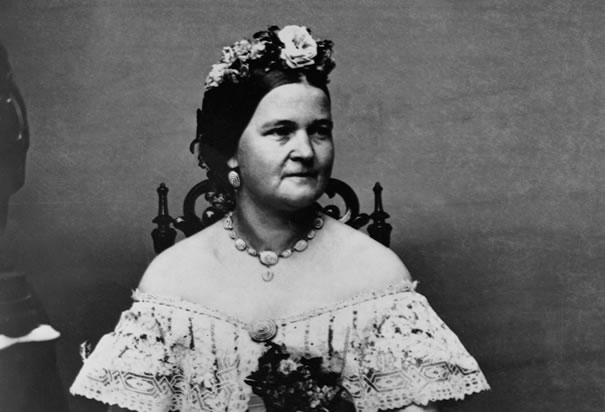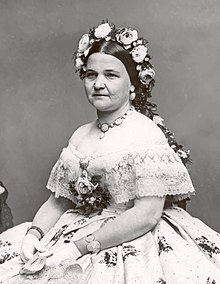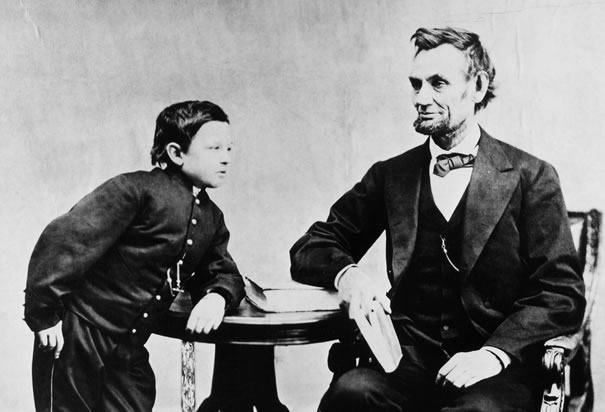It
is horrible to be a man. But the grinding misery of being a woman between the
upper and nether millstone of household cares and training children is almost
as bad. To be half civilized with some aspirations for enlightenment, and
obliged to spend the largest part of the time the victim of young barbarians
keeps one in a perpetual ferment.
– Lucretia Garfield to James Garfield, June 5, 1877
The above quote was the only thing I
knew of Lucretia Garfield before I read Crete and James: Personal Letters of Lucretia and James Garfield edited by JohnShaw. I expected a bitter and complaining woman, but she really was not. She
must have written this quote on a bad day!
She had plenty of opportunity in her life to be a bitter and complaining
woman, but she choose patience and forgiveness which paid off to giving her a
long happy life.

Lucretia Garfield was well educated
in the classics and had been a college teacher of French, algebra, and Latin
among other things before she married James. But after she married James and
began to have children her time was spent in taking care of them and her
household including James’ mother and some boarders from time to time. In their
letters James and Lucretia reference a lot of classical literature that went
way over my head.
The source of most of her need for
patience and forgiveness was James himself. He had begun a correspondence with
her and her letters were very affectionate and flowery. James and Lucretia
talked of marriage, but in person Lucretia must not have been as affectionate.
James ended up marrying her out of a sense of duty. What a way to start out! In
their first 5 years of marriage, they only lived together for 20 weeks. Part of
that time he fought in the Union army and part of that time he was campaigning
but there was a lot of that time he was on trips for pleasure or to scope out
some land for a friend. Or to visit a mistress. There were two affairs which
Lucretia knew about that were mentioned in this book. In addition, there was a mutual
friend with whom James spent a lot of time with on a particular visit home. Oh,
at that mutual friend happened to be a boarder. Cormac O’Brien in Secret Lives of First Ladies alludes to
more affairs. But Lucretia remains a steadfast spouse despite her lack of
trust. A painful part of the correspondence to read was where Lucretia finally
for the first time referred to herself as a trusting wife. This was after one
affair had been discovered and broken off and just after the couple and been
bonded together by experiencing the death of their 3 year old firstborn. But what does James do right after this trusting
comment? While in Washington he begins
another affair!
Lucretia finds out, James breaks it
off, and Lucretia works again and forgiving and trusting.
At this point in the correspondence
I am disgusted by James. How could he do that to his wife?
But the rest of their life is all
uphill and by the end, I am amazed at their genuine love and respect for each
other. The next jump start in their relationship is from a 4 month trip to
Europe the two of them take together. Then James builds a home in Washington
for the whole family and from then on they aren’t separated as much.
It’s interesting to read letters
between a couple. It’s like being a fly on a wall eavesdropping in on a
conversation. Although James makes a comment at one point wondering if anyone
in the future would read their words to each other.
James Garfield is shot shortly after
he is inaugurated as president in 1881 and suffers for a few months with
Lucretia by his side before he dies.
Lucretia lives many more years until
she passes away in 1918. Since this was a book of letters between them, the
book ends in 1881, but according to firstladies.org Lucretia remains very
active in her intellectual pursuits like literary circles and even designing
and engineering things for her home in Ohio and her home in Pasadena, CA.
It would have been very easy for
Lucretia to emotionally check out of her marriage. But she didn’t. She patiently
stayed committed and chose to forgive and move forward. This paid off as she
spent many years in a genuinely warm and loving marriage which was both
emotionally fulfilling and intellectually stimulating.
(Note: this post contains
affiliate links. Read the disclosure policy here.)










